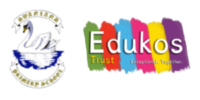RE
Religious Education Curriculum
Religious Education is a compulsory subject and forms part of the National Curriculum to which every pupil should have access. It can provide the foundation for many people’s lives and promote acceptance and understanding of other beliefs. Through the teaching of RE we aim to promote the spiritual, moral and cultural development of all pupils. The RE syllabus that we are currently following at Swanland Primary school is the ‘Agreed Syllabus for Hull and East Riding 2022’. At Swanland Primary School, we enable children to develop a sound knowledge for the following major religions; Christianity, Islam, Judaism, Hinduism, Sikhi and Buddhism, as well as worldviews, Humanism and Environmentalism. Children reflect on what it means to have a faith and to develop their own spiritual knowledge and understanding. We help children learn from religions as well as about religions.
RE Curriculum
“Religious Education teaches us about different Religions and Worldviews, helping us to understand the world around us”.
Intent
At Swanland School we believe it is important that our children learn from and about different religious and worldviews so that they can understand the world around them. Our intent for RE is to enable children to become inquisitive, resilient, respectful and accepting individuals who are able to express and articulate their own ideas and insights about the diverse world that they live in. Our RE curriculum plays an important role in our children’s spiritual, moral, social and cultural development. We aim to develop pupil’s aptitude for dialogue so they can participate positively in our society and express their learning in meaningful ways.
Implementation
Our school curriculum for Religious Education meets the requirements of the 1988 and 2002 Education Reform Acts. These acts stipulate that Religious Education is compulsory for all children. At Swanland school we have created our own scheme of learning based on the Hull and East Riding Agreed Syllabus for Religion and Worldviews 2022. RE is taught weekly across the school (KS1 60 minutes, KS2 75 minutes). We teach three units of learning per academic year in Key Stages 1 and 2 (plus additional content for Christmas and Easter). Within the Early Years Foundation Stage RE sits firmly within PSED and Knowledge of the World. Children develop a positive sense of themselves and others and begin to understand and value to differences of individuals and groups within their immediate community.
Our curriculum is broad and balanced, studying the perspectives and practices of a variety of religions and Worldviews.
Key Stage 1 –Christianity, Islam, Environmentalism.
Lower Key Stage 2 –Christianity, Judaism, Islam, Environmentalism.
Upper Key Stage 2 –Christianity, Hinduism, Sikhi, Buddhism, Humanism.
Each unit of learning has a clearly defined lens (Theological, Social or Philosophical) to support planning. All lessons have been sequenced to include: learning objective, ideas for lesson content, substantive and disciplinary knowledge, key vocabulary and assessment opportunities.
Our curriculum is progressive throughout the whole school. Key concepts are returned to and built upon throughout the years. We ensure that planned progression offers children increasing challenge as they move through the school. In order to help develop our children’s religious literacy, key taught vocabulary is built upon and extended each year. All children are assessed at the end of each unit. Learning is recorded in floor books and individual subject books.
Our school uses a variety of teaching and learning methods in Religious Education lessons. We recognise the fact that children have differing needs in class and therefore provide suitable learning opportunities for all children to thrive and achieve. We will aim to ensure that all children have the opportunity to visit a place of worship or meet a person of faith from each of the religions we have chosen to study.
Impact
Children at Swanland School enjoy learning about religious and other worldviews. Through their learning of RE, they are able to make links between their own lives and those of others in their community and in the wider world. They develop an understanding of other people’s beliefs, cultures and ways of life and appreciate the importance of showing consideration and respect for them. Our children possess a good understanding of the values and moral beliefs that underpin individual behaviour. They recognise the difference between right and wrong through the study of ethical questions and appreciate what it means to be positive members of our society.
[
[
Children in Reception enjoyed sharing their Ramadan and Eid traditions with their peers.







